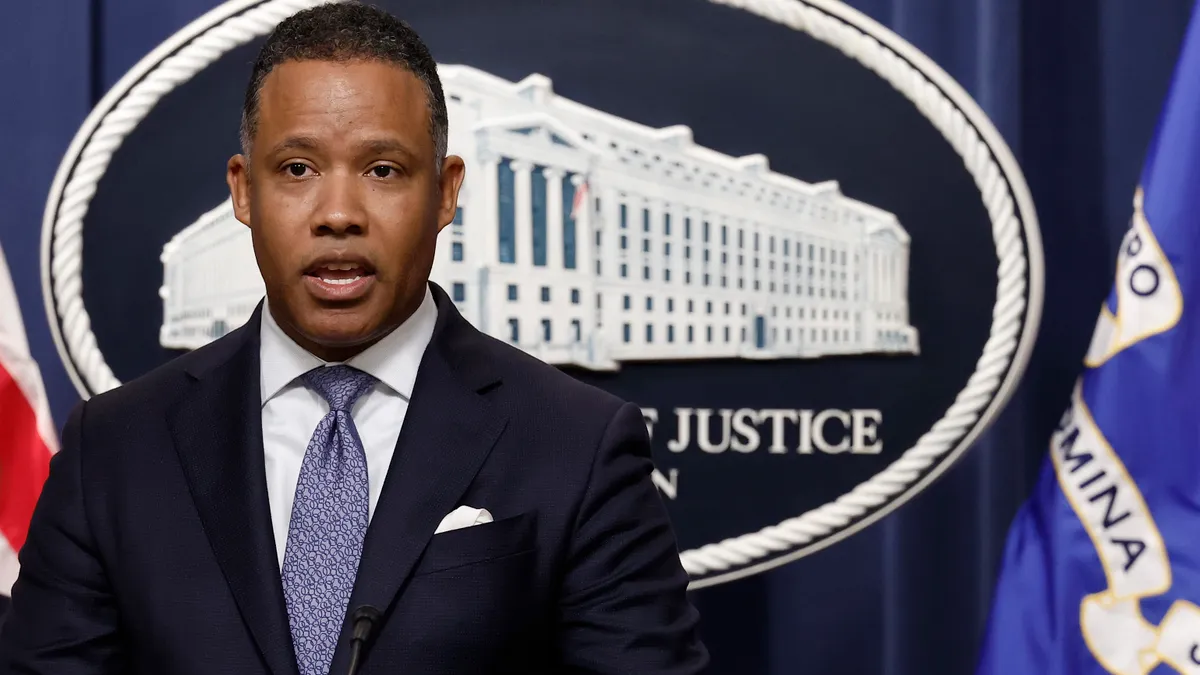The head of the Department of Justice’s criminal division, Kenneth Polite, Jr., is stepping down at the end of July, Attorney General Merrick Garland announced.
“Under his leadership, the division has accelerated its efforts to … tackle some of the most complex and urgent challenges our nation faces,” Garland said.
Assistant Attorney General Polite was one of the point persons on DOJ policy changes to encourage companies to come forward when internal wrongdoing is discovered rather than hunker down.
“Revisions [we undertook] make clear that there will be very different outcomes for companies that do not self-disclose [when they] have identified potential wrongdoing,” he said earlier this year.
Polite was named head of the criminal division in mid-2021 and is credited with helping to step up the division’s use of data analytics to find companies, and their executives, manipulating numbers.
“Data allows us to identify those aberrant trends which are indicative of criminal activity,” Polite told The Wall Street Journal. “We can’t look at everyone … but we can use that data to identify where we should be looking.”
In a high-profile use of its data analytics capabilities, DOJ and the Securities and Exchange Commission charged healthcare provider Ontrak CEO Terren Peizer with insider trading even though he executed his trades under a Section 10b5-1 plan. Under the plans, executives schedule trades in advance to give them an affirmative defense against insider trading charges even if the trades come just before or after a big change in stock value.
In the case of Peizer, though, DOJ’s use of data analytics suggested the executive executed the 10b5-1 plan with upcoming value shifts in mind. Peizer has denied the charges.
Self-disclosure
As part of the criminal division’s effort to get companies to step up self-disclosure, Polite encouraged executives to come forward even if the potential wrongdoing is egregious or the company is recidivist.
Prior to the policy changes, bad-acting or recidivist companies would have had a hard time getting cooperation credit, but now they have a path to get reduced fines, escape a finding of guilt or benefit from a declination of prosecution, Polite told corporate attorneys at Georgetown Law Center earlier this year.
“The policy [has] an undeniable message,” Polite said. “Come forward, cooperate, and remediate. We are going to be closely examining how companies discipline bad actors and reward the good ones.”
DOJ didn’t announce the reason for Polite’s departure but, as the Associated Press reported, a two-year stint is typical for a division chief.
Polite first joined DOJ in 2007 as a prosecutor for three years in the Southern District of New York, then returned in 2013 as U.S. Attorney for the Eastern District of Louisiana in New Orleans. DOJ has said he will be joining a private practice by the end of summer.
“There are days I wake up and I just can’t believe how many people we have in this division doing such a diversity of work in so many different places,” Polite told the Journal. “I’m going to miss it.”











